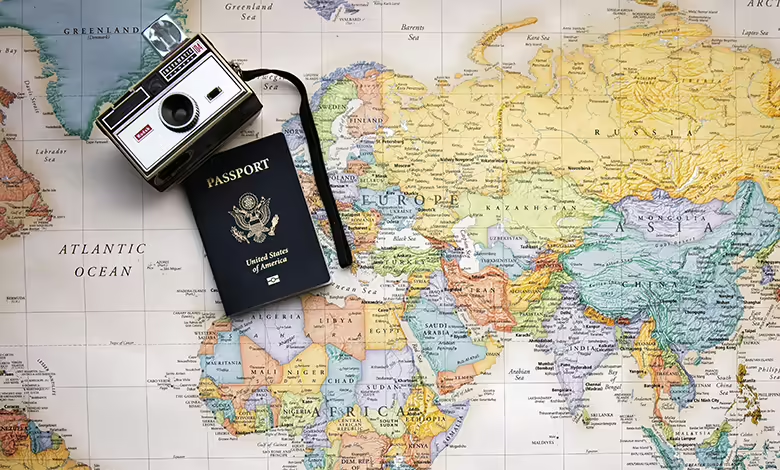
You have booked your hotel and flights. You have selected your tours. Now, all you have to do is start packing for your international trip.
But you may have forgotten one crucial aspect that could become the costliest part of your vacation — an unexpected medical emergency.
While travelers who’ve had to visit an emergency room during a stay abroad will mostly say that the care they received was adequate (and very good in some cases), they will also share that this medical service came at a cost –all because they didn’t have travel insurance that covered a medical emergency. Therefore, the price of the care came entirely out of pocket. And sometimes, they had to put thousands of dollars on their credit card — upfront.
Kristy Mosolino, owner of the Wishes Travel agency in Birmingham, Alabama, was on a trip to Mexico when a colleague tripped down a set of stairs in low lighting, propelling him through a glass window. He ended up spending the night in the hospital and needed plastic surgery for his wounds and facial injuries. Though Mosolino was with him and said he received excellent care, that medical event cost him $5,000, which had to be paid before he even left the hospital. And until the charge went through on his credit card, the hospital held onto his passport. Talk about a delay in getting home!
On a European cruise in 2023, a friend of mine, who was a passenger, fell after experiencing dizziness and heart palpitations. Thankfully, cruise ships have medical staff onboard, so a physician immediately assessed and treated him.
Because he has a history of cardiac problems, the physician needed to rule out a cardiac event, which meant bloodwork, EKG, monitoring, and other expensive testing. Ultimately, everything turned out fine except for the final bill, which totaled over $1,200.
Avoid costly healthcare bills when outside the country: Get medical travel insurance
Are you prepared for costly medical expenses if you become ill or have an accident while you are abroad? Anyone traveling internationally should have a medical travel plan in place to cover healthcare issues that arise. While many travelers ensure they are covered for trip cancellations, family emergencies, or other unforeseen travel complications, they often overlook the possibility of facing their own medical emergency abroad.
Travel insurance protects your travel investment and covers costs due to unforeseen events. The best policies cover trip delays, cancellations, weather issues, and baggage problems. Travelers should ensure that medical coverage is included in their plan or, at minimum, purchase a separate supplemental travel medical insurance policy.

Insurance advice from a travel advisor
“Medical plans offer different levels of coverage, often divided into primary and secondary tiers,” Mosolino said. “Travelers should know what these policies cover regarding medical treatment, medical evacuation, and even your transportation home. The company can explain how the policy works, how much they will pay upfront in case you need medical assistance, and how to receive reimbursement in case of a medical emergency.”
Reliable travel insurance companies such as AIG Travel offer 24/7 assistance in solving travel problems, big and small. Many provide a global network of travel experts and trusted medical providers and even connect you to important information and alerts wherever you are.
“Bottom line,” Mosolino added, “For the money these policies cost, the peace of mind is well worth it. When travelers turn down our agency advisors’ offer of a travel/travel medical insurance policy quote, we cringe at the thought of someone paying so much for the trip of their dreams and then gambling with their health or pocketbook while on travel.”
How much does travel insurance cost?
This answer can vary based on the total cost of the trip (your investment in flights, transportation, and hotels), your age, and the type of medical travel insurance you choose.
Age tends to affect rates of those 60 and older the most, so while travelers can expect the cost of the travel insurance policy to typically fall within the 4 to 6 percent range of the total cost of the trip, according to a study by Forbes, those over 60 will likely see a higher rate.
What isn’t covered by travel medical insurance
Every traveler should review policies for details on the medical conditions and activities not covered, and though they can vary by the insurance company, the list of exclusions, for the most part, includes:
- Cosmetic and elective surgeries
- Injuries due to extreme sports
- Intentional self-inflicted injuries
- Suicide or attempted suicide
- Injury or illness sustained while exceeding the legal alcohol limit.
Buying travel insurance (with a medical clause or add-on) is a wise investment, especially if:
- Your non-refundable trip costs exceed what you can afford to lose.
- You are traveling internationally, where most U.S. health insurance plans are not accepted.
- You will be in a remote area with limited access to care facilities.
- You’re visiting a hurricane or other disaster-prone area.
- Your trip includes connecting flights or multiple destinations.
- You cannot afford the cost of a medical emergency that could be thousands of dollars or more.

Accidents and emergencies happen. Travel insurance is a small, worthwhile investment, especially when surprises can arise abroad, regardless of the quality of medical care at your destination.





